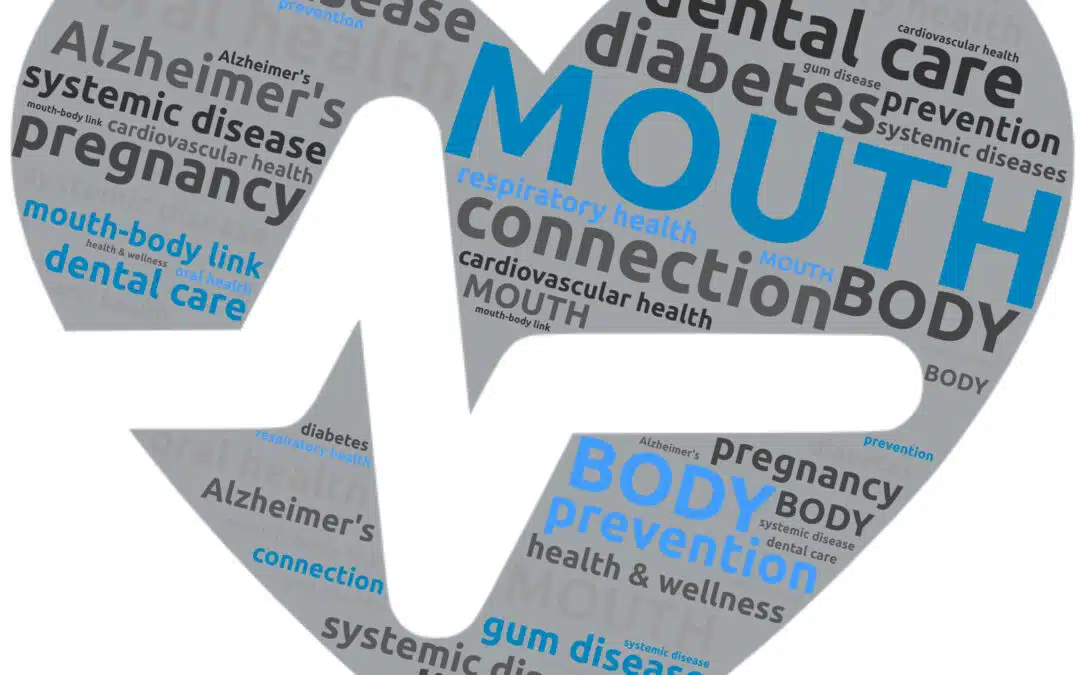
Mouth-Body Connection: How Oral Health Affects Your Well-Being
We’ve all heard the saying, “The eyes are the window to the soul.” But did you know that your mouth could be considered a window to your overall health? It’s true! Poor oral hygiene can lead to much more than just cavities and gum disease. In fact, the state of your oral health can have far-reaching effects on your entire body.
Understanding the Oral-Systemic Health Connection
The oral-systemic connection refers to the relationship between oral health and the health of the rest of your body. Your mouth is teeming with bacteria—some helpful, some harmful. Without proper oral hygiene, harmful bacteria can multiply and cause oral infections. These bacteria can then enter your bloodstream through inflamed gums, potentially affecting other parts of your body.
Major Diseases Linked to Oral Health
Cardiovascular Disease: Multiple studies have shown a link between gum disease (periodontitis) and heart disease. While the exact mechanism isn’t fully understood, inflammation appears to play a key role. Chronic inflammation from gum disease may increase inflammation throughout the body, potentially leading to the development of cardiovascular problems.
Diabetes: The relationship between diabetes and gum disease is a two-way street. People with diabetes are more susceptible to gum disease, and severe gum disease can make it harder to control blood sugar levels. This vicious cycle can exacerbate both conditions if left unchecked. Interestingly, emerging research also suggests a link between diabetes and Alzheimer’s disease, underscoring how managing one aspect of your health can influence multiple areas, including cognitive function.
Respiratory Infections: Bacteria from your mouth can be inhaled into your lungs, potentially causing respiratory diseases such as pneumonia. This risk is particularly high for people with periodontal disease or those with weakened immune systems.
Pregnancy Complications: Expectant mothers with gum disease may be at higher risk for pregnancy complications. Some studies have linked periodontal disease to preterm birth and low birth weight. While more research is needed, maintaining good oral health during pregnancy is crucial for both mother and baby.
Preventative Measures
The good news is that many of these risks can be mitigated through proper oral care. Here are some key steps you can take:
- Regular dental check-ups: Visit your dentist at least twice a year for professional cleanings and examinations.
- Daily oral hygiene: Brush your teeth twice a day and floss daily to remove plaque and bacteria.
- Healthy lifestyle choices: A balanced diet, limited sugar intake, and avoiding tobacco use all contribute to better oral and overall health.
When to Seek Professional Help
Be on the lookout for signs of gum disease, such as:
- Persistent bad breath
- Red, swollen, or bleeding gums
- Loose teeth or changes in how your teeth fit together
If you notice any of these symptoms, don’t hesitate to consult with your dentist. Early intervention can prevent more serious problems down the line.
The mouth-body connection is a powerful reminder that our health is interconnected. By maintaining good oral hygiene, you’re not just protecting your smile—you’re safeguarding your overall health. Remember, a healthy mouth is an essential component of a healthy body. Make oral care a priority in your daily health regimen, and your whole body will thank you!



